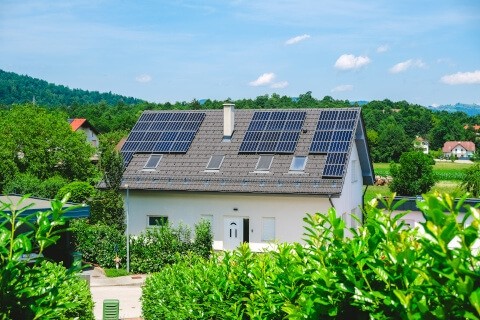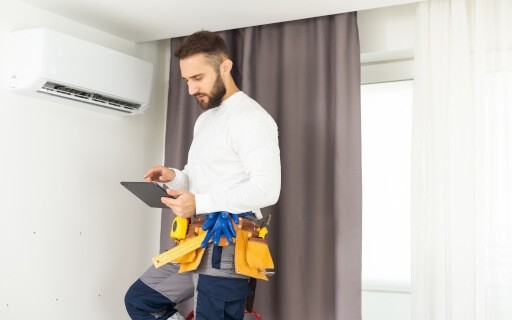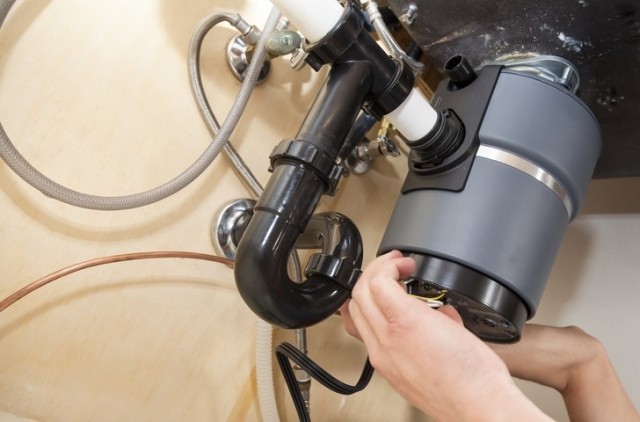Keeping the yard around your rental property in top condition can help add some serious curb appeal to your rental. The state of your yard can also affect the health and safety of your tenants and the unit itself. Depending on the type of rental you have, the responsibility of yard maintenance can be difficult to assign. Someone needs to mow the grass, prune back overgrowth, water the plants, and rake leaves, but who exactly is responsible, and should you pay your tenant to do the yard work?
Why Is Maintaining Your Yard Important?
It might surprise you that maintaining your yard is an integral part of maintaining your rental and the quality of life of the tenants who reside there. On an aesthetic level, a well-maintained yard and grounds is simply nice to look at. A well-pruned yard and garden is easier to enjoy and adds curb appeal to your property. No one wants an eyesore. You also run the risk of breaking community covenants if your yard gets too out of hand, and the city can order you to clean it up or even issue a fine.
Aside from the visual standpoint, a poorly maintained yard is an open invitation to pests and critters of all types. Grass that’s too long is prime real estate for rats and bugs that can eventually work their way into your rental. If this results in a pest infestation, the health of your tenants could be in jeopardy.
Adequate ground covering and drainage is also necessary to keep the foundation of your house or apartment secure. Excess runoff from gutters or poor drainage that seeps back towards the house can erode the soil around the foundation of the structure, leading to sky-high repair costs that may seriously harm your business and displace your tenants.
Check Your Lease
If you’re unclear as to whose responsibility yard maintenance is, check your lease first. When the use of the yard is included in the rental agreement, you can assume that responsibility for basic maintenance goes with it. This isn’t always the case, however. In some localities, lawn and garden maintenance is the landlord’s responsibility unless otherwise specified.
If your rental agreement lacks a specific clause that assigns lawn maintenance to either you or the tenant, then you’ll have to assess the rental situation and go from there. When a tenant has exclusive use of the yard, responsibility for maintenance usually goes with it, while the landlord is usually responsible for repairs. If the tenant shares the yard or grounds with other units, that responsibility typically falls on the landlord. Make sure to check your state laws and community ordinances and make amendments to your lease to prevent the situation from happening again.
Why Pay a Tenant for Yard Work?
Paying a tenant for yard work is a personal choice that you will have to work out with your tenant and clearly define in the rental agreement. You may consider paying the tenant to maintain the yard if your rental resides on a large plot of land or if certain plant species in the yard require extra attention. You might want to compensate your tenant for yard work if you live far away from your property and can’t check up on its appearance frequently. It’s up to you to weigh the costs between paying your tenant or hiring a professional lawn care service.
There are certain cases in which a landlord is required to pay a tenant if the yard maintenance is left to them. In Minnesota, for example, the landlord cannot require the tenant to perform outdoor chores without offering fair compensation. Compensation may be either in the form of payment or a rent discount.
Minnesota’s compensation bylaw is not the norm. In other states, landlords do not have to compensate for “reasonable care” such as mowing, leaf removal, and weeding, provided the state housing code does not specify any of those tasks as the landlord’s responsibility.
What if your tenant completes extensive yard work you didn’t authorize or makes unauthorized repairs? Without a contract, you are not obligated to compensate a tenant for any work they do over and above that which constitutes reasonable care, no matter how much it needs to be done.
Be Specific in Your Lease
It’s worth repeating that your lease is your best defense for avoiding any confusion between you and the tenant. Set clear guidelines in the lease for who will be responsible for maintaining the yard. If you decide to take on the work, make sure your tenant knows when and how often they can expect you or a yard service to come and tend to the yard.
If you decide to leave the yard duties to your tenant, clearly state what exactly needs to be done, such as mowing the grass, trimming trees, pulling weeds, etc. This is also where you should state exactly how much the tenant will be compensated for yard work (if you’ve decided to do so), whether it be monetary compensation or a rent discount. You should also state that any work the tenant does outside of the basic requirements will not be compensated for, unless a prior agreement was made.
Whether you choose to leave the yard maintenance up to the tenant or take the garden work into your own hands, just make sure both parties are on the same page when it comes to who will be flexing their green thumb. You can easily add a stipulation to any lease on Apartment.com. Our fully customizable lease agreements are state-specific and legally binding, meaning you can create a lease no matter where your property is located, and it will adhere to all state laws and local ordinances. Once your lease is created, your tenants can quickly sign online. No more hand-delivering paper leases and then trying to find a place to store them! Apartments.com keeps all your leases neatly organized and accessible so you can reference them whenever you like.











